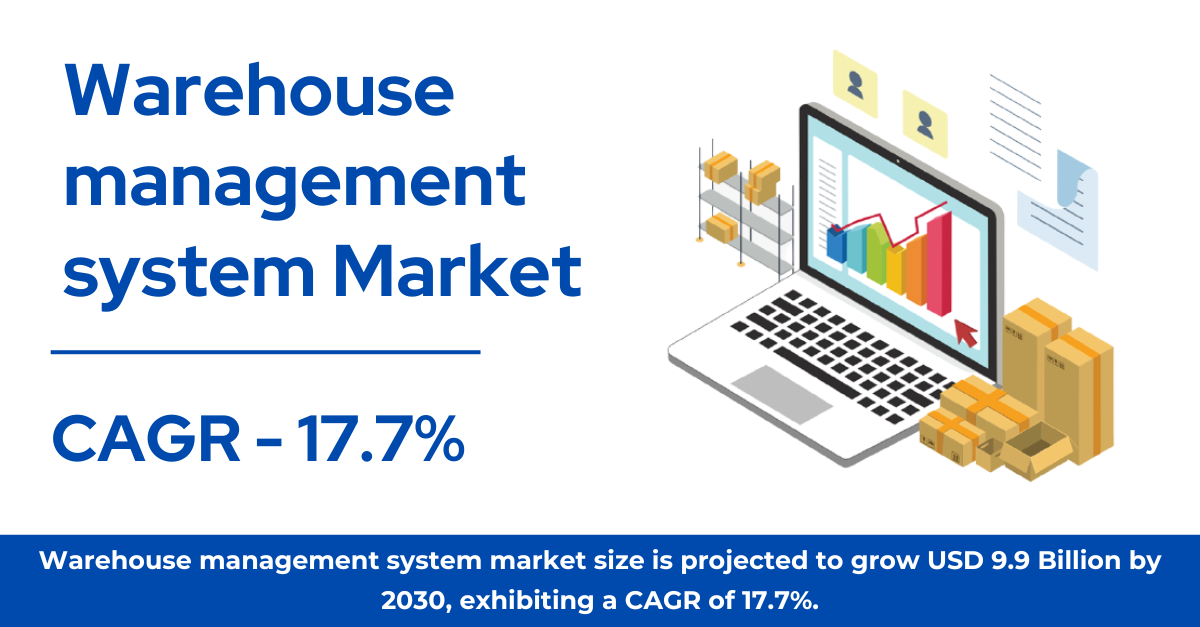Warehouse management system Market Overview:
The Warehouse Management System (WMS) market is a rapidly growing segment of the global supply chain industry, driven by the increasing need for efficient logistics operations and streamlined inventory management. A WMS is designed to optimize warehouse functions, from tracking inventory to order fulfillment, improving overall productivity. With the rise of e-commerce and omnichannel retailing, businesses are focusing on advanced warehouse solutions to meet customer demands. These systems provide enhanced visibility into real-time inventory levels, streamline supply chain operations, and help reduce operational costs, driving their adoption across industries such as retail, manufacturing, and healthcare.
Market Growth Trends:
The warehouse management system market is witnessing significant growth due to advancements in technology, including artificial intelligence (AI), cloud computing, and automation. Cloud-based WMS solutions are particularly popular, offering scalability and real-time access to data from anywhere. The rise of e-commerce has increased the demand for faster order processing and delivery, pushing companies to adopt WMS to maintain competitiveness. Additionally, automation and robotics are transforming warehouse operations, further fueling the growth of WMS solutions. Integration with Internet of Things (IoT) devices for improved tracking and analytics is another emerging trend shaping the market’s future.
Get a sample PDF of the report at –
https://www.marketresearchfuture.com/sample_request/2028
Market is Segmented:
The warehouse management system market is segmented based on deployment type, component, and end-use industry. In terms of deployment type, the market is divided into on-premise and cloud-based solutions, with cloud-based systems gaining traction due to flexibility and reduced infrastructure costs. The component segmentation includes software and services, with software solutions covering core functionalities like order management, labor management, and inventory tracking. Services such as implementation, consulting, and maintenance are also integral to the WMS landscape. Regarding industry segmentation, retail, e-commerce, manufacturing, healthcare, and third-party logistics (3PL) providers are major adopters of warehouse management systems.
Market Key Players:
Key players in the warehouse management system market include globally recognized companies such as,
- SAP SE
- Oracle Corporation
- Manhattan Associates
- JDA Software Group
- Infor
These companies offer comprehensive WMS solutions that cater to the unique needs of different industries. SAP and Oracle, for instance, provide cloud-based platforms that integrate WMS with broader enterprise resource planning (ERP) systems. Manhattan Associates and JDA Software focus on supply chain and warehouse optimization solutions. Infor’s cloud suite includes advanced capabilities such as warehouse automation and labor management, further enhancing their market presence.
Regional Analysis:
Regionally, North America dominates the warehouse management system market due to the early adoption of advanced technologies and the presence of major WMS vendors. The region’s strong logistics infrastructure, coupled with the rapid growth of e-commerce, drives demand for WMS solutions. Europe is also a significant market, with countries like Germany and the UK leading in the adoption of modern warehouse technologies. Asia-Pacific is expected to witness the fastest growth, driven by the expanding retail and manufacturing sectors in countries like China and India. Latin America and the Middle East are emerging markets, showing increasing interest in WMS as businesses modernize their supply chain operations to meet growing consumer demands.
The warehouse management system market is on a steady upward trajectory, with businesses across the globe recognizing the need for efficient, technology-driven solutions to improve operational efficiency and meet customer expectations. With continued advancements in automation, AI, and IoT, the WMS market is expected to grow even further in the coming years.

